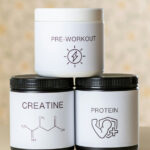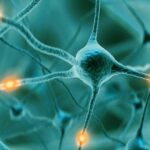Response of an MD/PhD to the China Study Debate
Are you sick of debate on the China Study?
Remember how Mercola said his D.O. experience is more valuable than a PhD nutrition researcher’s?
If you’re not too sick of reading opinions, here’s a comment by a reader that was buried deep in the comments on my blog, by an M.D. who also has a PhD. I think it’s important to note that while Mercola’s reported experience eating fruit for breakfast, and his triglycerides increasing (he implies these things are linked), is rather isolated.
(With anything that falls in the “case study” category, at best, I have this reaction: “Hm, interesting–but I’m putting no stock in that without more compelling evidence.)
Dear Robyn,
I want to respond to your message here as relates to The China Study and Dr. Mercola. Generally, Dr. Mercola is well respected in the health food industry; however, I think his analysis here is flawed. He is correct that The China Study is an observational study, but so are many studies. It is a very extensive, well designed study done by a top notch team of researchers
over many years.
They studied 6,500 people over diverse parts of China and came up with over 8,000 statistically significant associations between lifestyle, diet and disease.
I do think he may have generalized a little far from the associations found with casein, the major milk protein, and all protein. Nevertheless, it is hard to ignore the results of this study and the associations between high protein diet and diseases ranging from cancers to a wide range of autoimmune diseases.
I also found Dr. Mercola’s experience of moving some fruit into his breakfast and supposedly that causing him to have triglyceride levels of 3000 a little hard to believe. I have done hundreds of lipid panels and have never seen a triglyceride level even remotely close to that, not that it couldn’t happen.
There may be familial illness in his case but even those people generally don’t have levels approaching that. Another point is that high-protein, meat-based diets have for the most part been shown to be often quite harmful. Even the American Heart Association agrees with that. Dr. Atkins would probably also agree if he were still alive.
I do agree that one needs to listen to one’s body, but people are often fooled due to the very strong addictive qualities of our modern food industry. A great resource for that is Dr. Kessler’s book, “The End of Overeating”. People are very fooled into what they think they need and want, food-wise.
Dr. Mercola’s Nutritional Typing test asks a series of food preferences and how people feel with various food selections. How can one answer those questions realistically if they have no concept what true organic food is and how it operates in the body? Of course, more people are
going to associate with the higher protein diets, that is what they have been eating all their lives and that is what they think they need and feel best on. They have never been detoxified from those foods and been in touch with what they could feel like if they only knew.
Keep up your good work Robyn!
Sincerely,
Tim M., M.D., Ph.D.
Robyn’s response:
One thing I agree with in Minger’s critique (and what you say here) is that it’s a stretch to assume that because casein (milk protein) caused havoc in the laboratory, that all animal protein causes the same problems. I found Campbell to be honest about this, however, when I attended his lecture.
And he spoke, I spoke to him in person about whether any of his research could indicate whether kefir or yogurt–enzyme- and probiotic-rich raw milks with proteins broken down by fermentation–are a problem. He said, “I don’t know. We didn’t study that. It’s possible.”
Posted in: Whole Food














